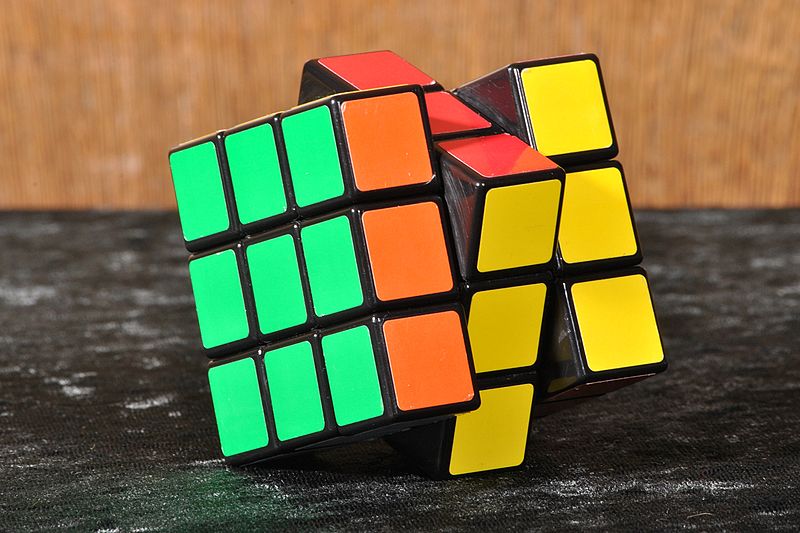Set the (Rubik’s Cube) Record Straight
The type of three by three Rubik’s Cubes that the team solved twenty five of in a little over a minute. Photo courtesy of Wikimedia commons.
April 10, 2016
After attempts at breaking one of the Rubik’s cube national team records for years, Jefferson’s Rubik’s Cube team has finally done so. The team completed the task of solving 25 Rubik’s cubes in 1:02.71 seconds at the “You can do the Rubik’s Cube competition” on April 2.
Despite being neck to neck with a rivalry school at the Rubik’s cube competition, this year Jefferson come back victorious.
“This is a record that we have been wanting to break for a very long time,” sophomore Frank Ding said. “TJ has had a rivalry with River Hill High School in Maryland for several years now.”
To some, this competitive spirit is what inspired them to begin working with the Rubik’s cube.
“There was an unsolved cube in my house and my sister managed to solve it,” freshman Justin Jou said. “So I got jealous, and I figured out how to do it faster.”
Others began pursuing the cube because of the opportunities they were given at their school to learn about the Rubik’s Cube.
“I used to go to Chinese school and they had a Rubik’s Cube class, and since I had two or three Rubik’s cubes just sitting around in my house, and I didn’t know how to solve them, I decided I might as well learn,” Ding said. “Once I started learning, I was hooked.”
Regardless of when each member started solving the Rubik’s Cube and why, the team is always able to work together.
Although this accomplishment of the team is one to be celebrated, some of the team members felt the competition was not as intense as previous years.
“Due to scheduling conflicts and stuff a lot of high schools couldn’t make it to the competitions, including River Hill,” Ding said. “We were just kind of competing against ourselves.”
Although overall the team was pleased with their accomplishment, competitors feel that they can perform better in the future.
“I think the record can definitely be improved on,” Ding said. “One minute two seconds is actually what we were pretty much averaging at the time when we were practicing together as a team, so that was a reasonable time. But our personal best for our team this year was 56 seconds, so there is definitely room for improvement and there is definitely a chance that it can be broken again.”






